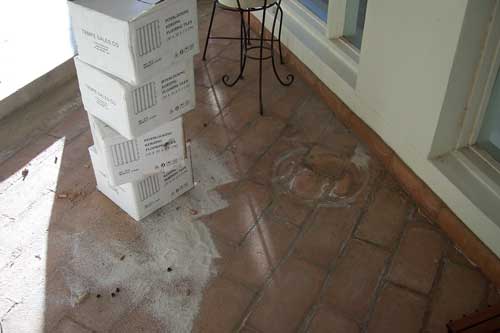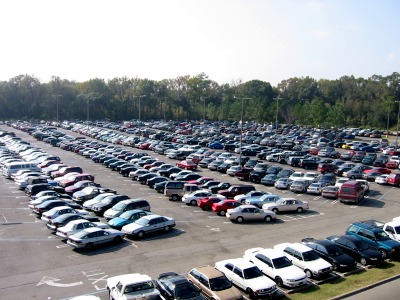So what does valet parking, soft drinks, and firewood have in common? More in a second. First, some background.
We have had a problem over the last few years in our California campgrounds. We sell a lot of firewood to campers, usually in bags of 6-8 sticks. We are having difficulties getting a good, inexpensive firewood source in the Owens Valley. We can find a bunch of people who will deliver stacks of firewood by the cord for a very good price, but only one person in the valley bags the wood. As a result, the bagging step alone is effectively costing us between $1 and $2 a bundle, which is a lot for something we sell for $5-$6.
In kicking the problem around, we considered what is becoming an increasingly common approach - if bagging is labor intensive and costly, lets see if we can outsource that step to our customers. Outsourcing to your customers has been around for a while, but has gotten more popular of late. Many furniture and equipment makers have been doing this for years, by outsourcing final assembly to customers. While some of this is to reduce shipping costs, part of the benefit to manufacturers is that they save on assembly labor.
Service industries have started to get into the act of late. Banks have been outsourcing teller functions for years via ATM's. Most fast food restaurants have outsourced soft drink cup filling to the customers. Grocery stores (and now Home Depot) have hopped on the bandwagon, providing self-service checkout for those who don't want to wait in line.
What all these examples have in common is that they seem to meet with customer acceptance if they provide some sort of value to the customer(short-circuiting lines, easier drink refills, the right amount of ice in the cup) , and not just cost-savings to the company.
Which brings me to the examples that really irritate me - of companies outsourcing their payroll to me. [Note, I am a libertarian -- please do not interpret the following as a call for government action!] Tipping, in its purest form, is a way to reward exceptional (meaning - beyond the standard or expected) service. Unfortunately, restaurants and other service establishments have twisted this act of reward and generosity into having customers pay the wages of their staff. Restaurants are simultaneously increasing tipping expectations (from 15% to 20%+) while requiring tips on more and more occasions by building them automatically into the bill.
The event that brought my irritation to a boil the other day actually happened valet parking my car at a restaurant. As background, the establishment charged $4 to valet park your car. Now, I am not a socialist, so I accept that value is not driven by cost but rather by what I am willing to pay for it, and I was willing to pay $4 to avoid having to walk a few blocks from the free lot (those of you from Boston or NY are wondering what the fuss is about -- a valet parking charge of any amount is virtually unprecedented in Phoenix, at least until recently).
So I paid my $4, and then I saw the sign:
"Our employees work for tips"
What? You mean I just paid your company $4 for what amounts to about 5 minutes of labor, and now you are telling me that in addition, I need to pay your employees' wages for you too? This is pretty nervy - I mean, other than a percentage concession payment they are probably making to be the parking company at that location, what other costs do they have? I didn't want to hurt the young guy actually doing the parking, but for the first time in years I didn't tip the valet. That little sign turned, for me, an act of goodwill into a grim obligation, extorted from me by guilt.
Which brings me back to firewood. In outsourcing bagging to the customer, I did not want to tick off our customers like I had been angered by similar steps, so I set two criteria for my managers and any plan they came up with:
- It had to save a substantial amount of money, some of which we could pass back to customers as a price savings
- It had to offer the customer more value - a better product somehow.
The plan my managers hit on was to purchase a number of small milk crates that customers could fill with wood for the same price as the old bag. These crates would hold a bit more than the old bag, so customers can get more wood for their money. In addition, customers can pick out their own pieces of wood from the stack. This is actually something that has been requested in the past - some customers complained the bags had too many small sticks, some complained they had too many large sticks. Now people can get what they want. We will try this out in a few sites to see what customer reaction is, and, perhaps more importantly, to see if we can hold on to our milk crates without them walking away.











